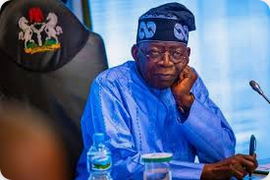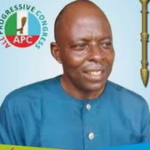The National Assembly has come under heavy criticism for the swift approval of President Bola Tinubu’s loan requests, raising Nigeria’s debt profile to an alarming N138 trillion.
Experts and stakeholders have expressed concerns over the legislature’s failure to adequately scrutinise the country’s borrowing plans, warning of dire economic consequences..CLICK TO READ THE FULL NEWS HERE▶▶
The Senate and the House of Representatives granted their assent within 48 hours after President Tinubu sought approval for a $2.2 billion (N1.77 trillion) loan.
This follows a report presented by Aliyu Wamakko, the Chairman of the Senate Committee on Local and Foreign Debts. According to Tinubu, the loan is embedded in the 2024 fiscal year’s external borrowing plan.
Senate President Godswill Akpabio, while reading the President’s letter, described the request as integral to the administration’s fiscal strategy. However, critics argue that this rapid approval process exemplifies the National Assembly’s failure to conduct rigorous oversight.
Mounting Debt and Legislative Approvals
As of June 2024, Nigeria’s total public debt stood at N134 trillion. With additional borrowings approved in July and November, the figure has risen to N138 trillion.
These loans include the securitisation of N7.3 trillion in Central Bank Ways and Means advances and $7.8 billion and €100 million for the government’s borrowing plan from 2022 to 2024.
The Assembly also approved a controversial $800 million World Bank loan and N500 billion for palliatives to cushion the effects of subsidy removal.
Despite assurances that the funds would address pressing economic challenges, experts have raised concerns about accountability and the actual impact of these funds on Nigerians.
Critics Condemn N’Assembly’s Oversight Role
Civil society groups and economic experts have accused lawmakers of rubber-stamping executive proposals without due diligence.
Auwal Rafsanjani, Executive Director of the Civil Society Legislative Advocacy Centre, lamented the legislature’s abandonment of its oversight responsibilities.
“It’s quite unfortunate that lawmakers give blanket approval to the president’s demands,” Rafsanjani said. “They have become more than rubber stamps, choosing to side with the executive at all costs. Their job is to scrutinise and investigate policies, ensuring all details are submitted and verified before approvals.”
Legal practitioner Victor Opatola echoed this sentiment, emphasising that the constitution mandates the National Assembly to assess the necessity and implications of financial requests thoroughly.
“The Assembly has the authority to interrogate the need for these loans and determine whether taking on additional debt is in the country’s best interest,” Opatola stated. “This power must be exercised rigorously, not as a formality.”
He further stressed that lawmakers must evaluate the utilisation of previous loans. “If there’s no evidence that past loans were effectively used, the Assembly must investigate before approving new ones,” he added.
Economic Risks and Mismanagement Concerns
Professor Sheriffdeen Tella, an economist at Olabisi Onabanjo University, warned of the economic dangers of unchecked borrowing.
“What we should be interested in is how effectively these loans have been utilised,” Tella said. “It is not in the economy’s best interest if loans are approved without being used to improve the lives of Nigerians.”
Other experts echoed Tella’s concerns, questioning whether borrowed funds have genuinely addressed infrastructure and economic development goals.
Way Forward
Observers insist that the National Assembly must step up its oversight role to ensure fiscal responsibility. This includes scrutinising loan requests, demanding transparency in fund utilisation, and holding the executive accountable for mismanagement.
As Nigeria’s debt burden grows, critics warn that the country risks long-term financial instability if borrowing continues unchecked. The role of the legislature, they argue, is critical in averting such a crisis.
The public is watching closely, with calls for lawmakers to prioritise the interests of Nigerians over executive expediency. Whether the Assembly will heed these warnings remains to be seen.



